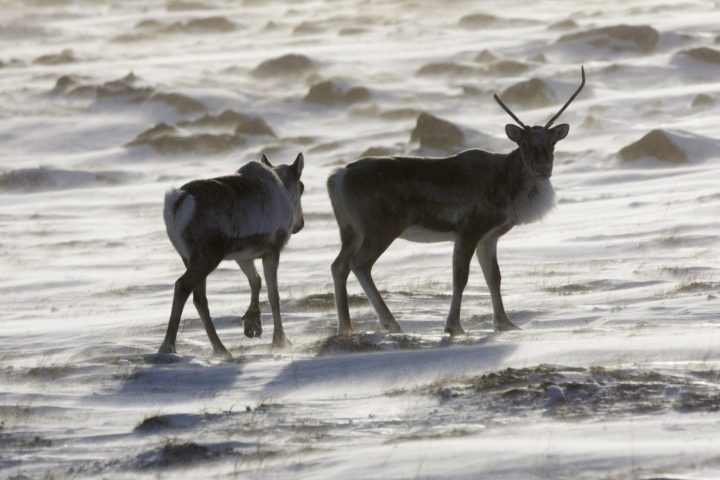DAWSON CITY, Yukon — The Yukon government has opened a licensed hunt for the Fortymile caribou herd west of Dawson City for the first time in 25 years.

Territorial officials have been working with Tr’ondek Hwech’in First Nation and the State of Alaska to help restore the migratory herd’s numbers since 1995, said Rob Florkiewicz, a fish and wildlife harvest co-ordinator with the Government of Yukon.
However, the decision to open the hunt this winter has drawn the ire of Tr’ondek Hwech’in Chief Roberta Joseph.
The territory acted unilaterally and prematurely, she said, since the First Nation has yet to sign off on a harvest management plan for the herd that’s still being negotiated. A plan would include details such as timing, geographic areas and the allowable harvest for a particular hunting season, she said.
At the turn of the century, the herd’s population may have numbered more than half a million caribou, said Florkiewicz.
Historically, the caribou migrated as far south as Whitehorse, more than 500 kilometres southeast of Dawson City. But by the 1970s, increased hunting and predation by wolves had spurred their precipitous decline.
Today, the herd’s population has grown to about 84,000, up from a low of 6,500, which is enough to support a “respectful, sustainable harvest,” the Yukon government said.
Members of the Tr’ondek Hwech’in First Nation have subsistence hunting rights and do not require a permit, but they have also volunteered not to harvest from the herd for more than two decades, said Joseph.
“It was a huge sacrifice for our people,” she said, noting that at one time, caribou from the Fortymile herd were an important food source for members.

Get breaking National news
She acknowledged that the herd’s population has increased, but said the First Nation’s people are still in “conservation mode.”
“After not being able to harvest for over 20 years, it’s going to take some time to reconnect with the Fortymile caribou, its habitat (and) our old traditional hunting areas.”
On the Alaskan side, harvesting Fortymile caribou was not banned, but the state government imposed harvesting limits and carried out a wolf-culling program that ended two years ago.

In the state’s management plan for the herd, the Yukon and Alaskan governments agreed to allocate 65 per cent of the total harvest to Alaskans, while Yukon hunters could take the rest, said Florkiewicz.
In Yukon, that works out to around 1,200 animals, he said, but the territory has elected not to access its share — until now.
From Jan. 1 to March 31, 2020, Yukon resident hunters who have not already reached the limit for caribou in this year’s hunting season are eligible for a permit allowing them to harvest one male Fortymile caribou.
The permits are valid for 10 days, with 25 permits available during each interval for a total of 225 permits, the government said. Hunters cannot obtain two consecutive permits.
All hunters, whether they are successful or not, must report their results.
According to the 1998 treaty between the Tr’ondek Hwech’in Nation and the Yukon and Canadian governments, the territory must allocate a portion of the total allowable harvest for Fortymile caribou to the nation.
“It’s pretty clear that Yukon government is not honouring the agreement,” said Joseph.
There should be no licensed hunt for Fortymile caribou in Yukon without a collaboratively-developed and approved harvest management plan, she said.
Matthew Cameron, a spokesman for the Government of Yukon, said this year’s harvesting opportunities are designed to ensure Tr’ondek Hwech’in’ rights are honoured and sign off is not required.
The hunt is aligned with adaptive management provisions approved for the herd in 2015 as part of Yukon’s Wildlife Act, which are separate from the harvest management plan, he said in an email.
The hunt was recommended by the Yukon Fish and Wildlife Management Board and supported by the Dawson District Renewable Resources Council, Cameron noted.

Joseph said pressure from the Alaskan government spurred the territory to open the hunt this year.
The state government indicated it would seek to increase its own allocation of the harvest for the Fortymile herd if the Yukon government did not allow harvesting, she said.
The federal Committee on the Status of Endangered Wildlife, or COSEWIC, has not assessed the Fortymile herd.
A neighbouring caribou herd is doing well. But that herd is one of just two barren-ground populations increasing across the Arctic, from Alaska to Baffin Island, the committee said in its 2016 assessment of the species.







Comments